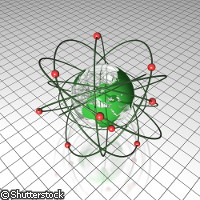Sustainable Nuclear Energy technology platform presents research strategy
The European nuclear fission research community has finalised their Strategic Research Agenda (SRA), which was presented at the FISA 2009 conference held in Prague, the Czech Republic from 22 to 24 June. The agenda was made available a few days before an independent review of European competence in nuclear fission research was presented by the Consultative Committee Euratom - Fission (CCE-FI) and the Environment Council adopted the Nuclear Safety Directive, which represents the first binding EU legislation on nuclear safety for all EU Member States. The Sustainable Nuclear Energy technology platform (SNE-TP) comprises experts from European universities, research institutions, utilities, systems providers, regulatory bodies and safety organisations. The platform was first formed in 2007 and represents a major effort to harmonise the goals of research institutions and universities with the practical needs of an evolving industry. The SRA incorporates the input of around 160 SNE-TP members, and covers every aspect of research in the nuclear energy field, including mining, fuel fabrication, fuel reprocessing, waste storage and 'recycling' (transmutation), reactor technologies, advanced fuels and research facilities, as well as safety requirements for operating reactors and ageing factors that affect existing reactors,. The SRA outlines priorities that will direct global research efforts for the current and future 'generations' of nuclear reactors. The strategy recognises the importance of meeting the EU's ambitious targets of reducing greenhouse gases by 20% by the year 2020 from 1990 levels. It prioritises maintaining the competitiveness of nuclear energy while supplying long-term waste-management solutions, developing reactors with a closed fuel cycle (which burn up waste products), and building competence by promoting education and training while ensuring the availability of research infrastructures. The SNE-TP vision report set out three major objectives: maintaining the safety and competitiveness of today's technologies; developing a new generation of more sustainable reactor technologies; and developing new applications of nuclear power. Such new applications include, importantly, the production of hydrogen (to which nuclear power is exceptionally suited) as well as desalination and industrial 'heat' applications such as the production of concrete or glass. The SRA specifically addresses the objectives of the Strategic Energy Technology (SET) plan, one of which is to complete preparations for the demonstration of 'generation-IV' reactors for increased sustainability. These reactors use fuel far more efficiently than is possible in existing reactors or those being currently built, and produce minimal waste. The most highly radiotoxic elements are 'burned up' in generation-IV reactors, several types of which are on the drawing table. The SRA sets out specific objectives for work on four types of generation-IV reactors. Another important objective of the SNE-TP is to assure the safe, secure and economic operation of existing and future 'light water reactors'. To this end, research on the effects of ageing - not just on the more visible parts of the plants but also on electronic components or wires exposed to radiation, for example - is clearly outlined. In addition, the way new plants are designed and constructed should be harmonised, according to the SRA, so that the requirements for licensing can be the same throughout Europe. Nuclear waste is another hot topic addressed in the SRA, which emphasises the importance of developing advanced fuel cycles that will enhance the efficiency of fuel use and minimise the volume, radioactive inventory and lifetime of the waste generated. Continuing research in the areas of partitioning and transmutation (separating radioactive elements in the waste from one another and turning them into something else) is also important for reducing waste and meeting sustainability goals. In terms of maintaining and developing competences within Europe, so that nuclear fission research and engineering efforts can continue to thrive as more experienced researchers and engineers retire, the SNE-TP's SRA addresses the importance of bringing young scientists into the field, managing the existing knowledge and organising a network of research infrastructures. Such infrastructures are essential for hands-on training as well as for materials research, which is crucial for the development of reactor designs. In related news, during the 25 June meeting of the Environment Council of the European Union, legislation bringing into law the fundamental safety principles set out by the International Atomic Energy Agency (IAEA) was adopted. The Council also adopted decisions authorising the Commission to open negotiations on agreements for scientific and technological cooperation between the Euratom (European Atomic Energy Community) and Croatia, Serbia and Turkey, associating these countries to the Euratom Framework Programme for Nuclear Research and Training Activities (2007-2011). The SRA and the CCE-Fission report, which will be made available in the week of 29 June, were presented at the FISA 2009 conference, organised by the European Commission's Directorate-General for Research.



